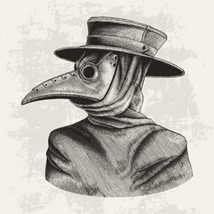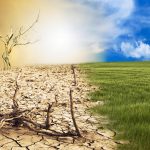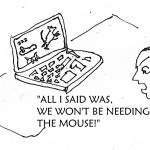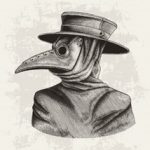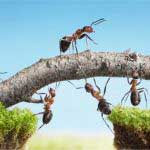“Begin at the beginning,” the King said, gravely, “and go on till you come to the end: then stop.”[1]
Of course, we didn’t. Begin at the beginning, that is – because back then we did not realize it was a Beginning that would drag out into a seemingly interminable Middle toward an End that is only now coming into our field of vision, albeit inchoate.
On January 31st 2020, Britain left the European Union at the start of an 11-month transition period; while the first two cases of 2019-nCoV, later known as SARS-CoV-2 (COVID-19) were confirmed.
February was the wettest since 1862 when records began, with Storms Ciara and Dennis bringing gales and major flooding incidents across Britain. We also saw the first British death from COVID-19: a man quarantined aboard the Diamond Princess cruise ship in Japanese waters (in January, a passenger on a previous voyage embarked in Yokohama and disembarked in Hong Kong, testing positive for COVID-19 on 1 February). A 75-year-old woman from Nottinghamshire, taken on 21 February but only tested months later in August, was probably the earliest person known to be infected and probably the first in the UK to die with the disease.
In early March, the number of UK cases now at 36, the government released a multi-scenario action plan for dealing with what was now recognized as a pandemic, though potentially “mild”. But as March progressed, the number of cases (and deaths) rose steadily – 1500 and 55 respectively by March 15th – and a wave of largely inexplicable panic buying caused shortages of pasta, hand sanitizer and toilet paper, as the pound sterling fell to its lowest level against the US dollar since 1985.
On March 20th, Northwick Park hospital declared a “critical incident” following a surge in patient admissions; “unprecedented” (a future winner of the “Most Used By Media” award) wage support measures were announced, as cafés, pubs and restaurants were closed except for takeaways.
On March 23rd, the British Prime Minister announced a UK-wide lockdown with immediate effect. We could leave our homes only for “very limited purposes”: shopping for essentials, medical needs, one form of exercise daily, and “absolutely necessary” travel to and from the workplace.
So that was, arguably, the Beginning of the Middle Ages.
We were on a precipitous runaway roller-coaster with no way of getting off. By May, the UK death toll was the highest in Europe with frontline health workers in hospitals and care homes increasingly stressed, and insufficiently protected. (Today, in the US, deaths are at half a million and rising. Much of Europe has retreated into lockdown again, although vaccination uptake is promising.)
In parallel; social media revealed a new protest group, COVIDeniers, often openly citing then US President Donald Trump calling the disease “fake news” and “a hoax”, refusing to wear protective equipment or respect “social distancing”, unresponsive to testimonials by the bereaved or health workers. This while cases worldwide continued to increase, with a bewildering panoply of symptoms and patient profiles, and searches for vaccines and effective treatments multiplied,
Intriguingly, historians researching popular reactions to the plagues of the past find no evidence of this sort of denial. Despair, certainly, although this was a sin against God. Anger, increasingly fuelled by economic anxiety as deaths caused tax revenues to fall, crops to go unharvested, and food shortages to become rife. So what bred the COVIDeniers and conspiracy theorists? Psychologists argue that these are largely maladaptive coping strategies in the face of limited – and often contradictory – information/understanding, and limited evidence-based decision-making skills, often compounded by forms of “magical thinking”.
More hopefully, though, survivors were offered the opportunity to change and embrace new paradigms, whether from state religion to Christianity, or from institutionalized faith to a new humanism. Let us hope, then, that this may be our New Beginning – once we reach the End, whenever that is.
[1] Lewis Carroll, Alice’s Adventures in Wonderland, Chap. XII

